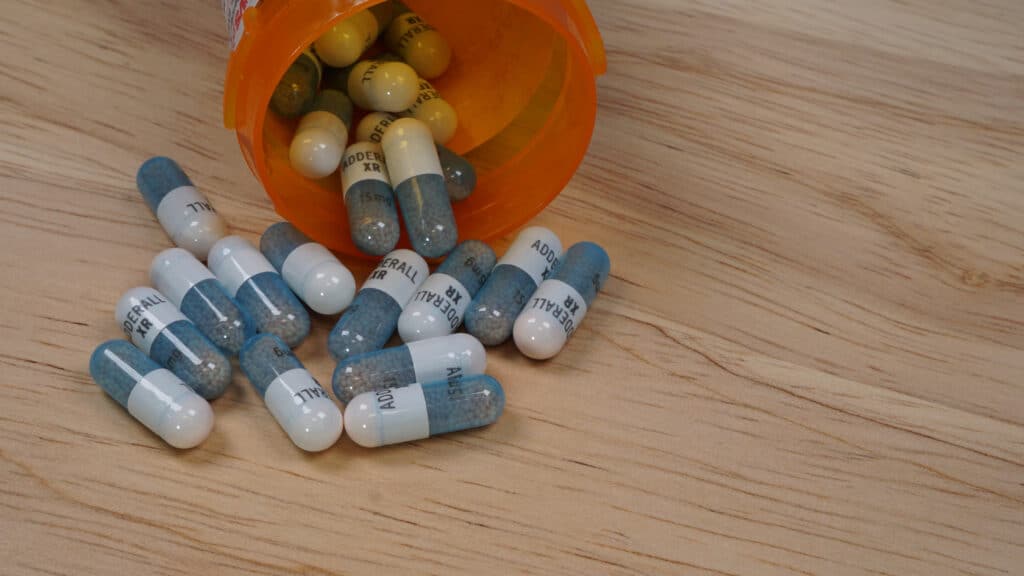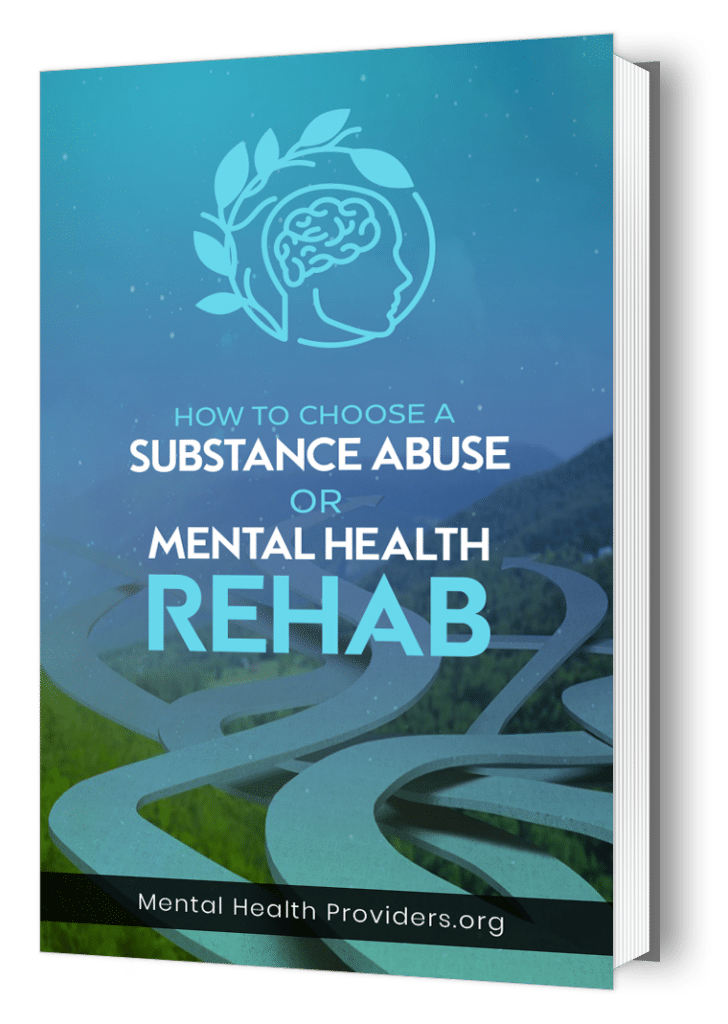
Adderall
- Last Updated: May 7, 2023
Adderall is a prescription drug commonly used to treat attention deficit hyperactivity disorder (ADHD) and narcolepsy. It works by increasing certain brain chemicals responsible for regulating attention and alertness. However, when taken in large doses or without a prescription, Adderall can lead to addiction, dependence, and other adverse side effects.
The nature of Adderall abuse treatment options focuses on addressing the underlying causes of addiction, developing coping strategies, and promoting long-term recovery. Adderall treatment options include medical detox, inpatient rehab, and outpatient therapy. Medical detox is the first step in treatment, where medical professionals monitor individuals and manage withdrawal symptoms. Inpatient rehab provides a structured environment for individuals to receive intensive therapy and support from mental health professionals. It can be effective for those with mild addictions or as a step-down after completing inpatient rehab. Outpatient therapy involves regular meetings with a therapist. Treatment plans may include a combination of individual therapy, group therapy, family therapy, medication-assisted treatment, and holistic therapies such as meditation, yoga, and art therapy. Treatment offers the patient the opportunity to recover with the support of qualified professionals, ensuring the highest success rates while focusing on restoring their physical and mental health. Continue reading below to learn more about Adderall abuse including symptoms, signs, and treatment options.
What is Adderall Abuse?
Adderall abuse refers to the non-medical use of the drug, whether taking it without a prescription or taking higher doses than prescribed. Adderall abuse can lead to a variety of adverse physical and psychological effects. At extremes, Adderall abuse can lead to mental health conditions such as psychosis.
Symptoms of Adderall
- Increased heart rate and blood pressure
- Insomnia or other sleep disturbances
- Loss of appetite and sudden weight loss
- Anxiety, agitation, and irritability
- Paranoia and confusion
- Hallucinations or delusions
- Seizures or convulsions
Signs of Adderall Abuse
- Taking Adderall without a prescription or in higher doses than prescribed
- Ingesting Adderall by snorting it
- Continuing to use Adderall despite negative consequences, such as poor grades, relationship problems, or financial issues
- Needing to take more Adderall to achieve the desired effects
- Neglect of personal hygiene and appearance
- Social isolation and withdrawal from friends and family
- Financial problems or sudden changes in spending patterns
- Poor performance at work or school
- Disregard for personal responsibilities and obligations
- Engaging in risky behavior while under the influence of the drug
Adderal Rehab Treatment Options
If you or someone you know is exhibiting any of the symptoms or signs mentioned above, it is critical to seek help. There are a variety of treatment options available for Adderall abuse.
- Adderall Detoxification: The first step in treating Adderall addiction is detoxification, which involves flushing the drug out of the individual’s system. Detoxification is typically done in a medically supervised environment, where individuals can be closely monitored for withdrawal symptoms.
- Adderall Therapy: Therapy is an essential component of Adderall addiction treatment. Different types of therapy can be used to help individuals understand the underlying causes of their addiction, develop coping mechanisms, and learn healthy behaviors to replace addictive behaviors.
- Support groups: Support groups like Narcotics Anonymous or SMART Recovery can be extremely beneficial for individuals recovering from Adderall addiction. Support groups provide a safe space for individuals to share their experiences, receive support from others who have gone through similar experiences, and learn from others’ recovery journeys.
- Outpatient Adderall treatment: Outpatient treatment programs are designed to provide addiction treatment while allowing individuals to continue living at home and maintaining their daily routines. Outpatient treatment can include therapy, support groups, and medication-assisted treatment.
- Inpatient Adderall treatment: Inpatient treatment programs require individuals to live at the treatment center for a specific period while receiving addiction treatment. Inpatient treatment can provide more intensive care, including 24-hour medical and therapeutic support.
- Medication-Assisted Treatment: Medication-assisted treatment involves using medications, such as naltrexone or buprenorphine, to help individuals manage their Adderall addiction. These medications can help to reduce withdrawal symptoms, cravings, and the risk of relapse.
To locate Adderall addiction treatment centers near you, search by zip code below or call us today!
Your Recovery Starts Today!
Call for Immediate Assistance1-888-546-6005
Frequently Asked Questions About Adderall
The length of time that Adderall stays in your system can vary depending on several factors, including age, weight, dosage, and frequency of use. Generally, Adderall has a half-life of about 10 hours, meaning half of the drug is eliminated from the body after 10 hours. However, it can take up to 72 hours (3 days) for Adderall to leave your system altogether. This means that traces of the drug may still be detectable in blood, urine, or saliva tests for up to three days after the last dose.
It is important to note that the detection time for Adderall can vary depending on the type of drug test used, as well as the sensitivity and accuracy of the test. In addition, some factors, such as kidney or liver problems, can affect the elimination of the drug from the body.
If you have concerns about how long Adderall may stay in your system, consult a healthcare professional or qualified drug testing expert who can provide more specific information based on your circumstances.
Several alternatives to Adderall can be used to treat attention deficit hyperactivity disorder (ADHD) or improve focus and concentration. Here are some examples:
- Methylphenidate (Ritalin, Concerta): Methylphenidate is a stimulant medication that works similarly to Adderall by increasing dopamine and norepinephrine levels in the brain. It is available in immediate-release and extended-release formulations.
- Atomoxetine (Strattera): Atomoxetine is a non-stimulant medication that works by increasing the levels of norepinephrine in the brain. It is taken once a day and has been shown to be effective in treating ADHD.
- Guanfacine (Intuniv): Guanfacine is a non-stimulant medication that increases the activity of specific receptors in the brain, leading to improved attention and impulse control.
- Lisdexamfetamine (Vyvanse): Lisdexamfetamine is a prodrug converted into dextroamphetamine in the body, similar to Adderall. However, it has a slower onset of action and is less likely to be abused.
- Modafinil (Provigil): Modafinil is a medication that promotes wakefulness and has been shown to improve cognitive function in people with ADHD.
- Mindfulness meditation: Mindfulness meditation involves training the mind to focus on the present moment and has been shown to improve attention and reduce symptoms of ADHD.
- Exercise: Regular exercise has been shown to improve focus, cognitive function, and mood, making it a potential alternative or complement to medication for managing ADHD symptoms.
It is important to note that the effectiveness and suitability of these alternatives may vary depending on individual circumstances and the severity of symptoms. It is best to consult a healthcare professional to determine the most appropriate treatment plan for your needs.
Yes, Adderall can be addictive. Adderall is a prescription medication that is used to treat attention deficit hyperactivity disorder (ADHD) and narcolepsy. It contains the stimulant drugs amphetamine and dextroamphetamine, which affect the brain’s dopamine and norepinephrine levels, leading to increased alertness, focus, and energy.
When taken as prescribed and under the supervision of a doctor, Adderall is generally safe and effective. However, when misused, such as taking higher doses than prescribed or without a prescription, Adderall can be addictive. People who misuse Adderall may experience a “high” or euphoric feeling, leading to repeated use and psychological and physical dependence on the drug.
Adderall addiction can have serious consequences, including an increased risk of heart attack, stroke, and seizures. It can also lead to financial and legal problems and strain relationships with friends and family. Therefore, it is essential to take Adderall only as a doctor prescribes and use it responsibly. If you think you may have an addiction to Adderall, it is crucial to seek professional help.
Adderall rehab is a structured program that helps individuals who have developed a dependency on Adderall to recover from their addiction. It typically includes therapy, counseling, and support groups to help individuals overcome their addiction and learn the skills necessary to maintain their recovery.
The duration of Adderall rehab varies depending on the severity of the addiction and the individual’s unique circumstances. Some programs may last several months, while others may be shorter.
Signs of Adderall addiction may include taking larger doses of the drug than prescribed, experiencing withdrawal symptoms when not using the medicine, and neglecting responsibilities or activities in favor of using Adderall.
During Adderall rehab, individuals will typically participate in therapy sessions to address the underlying causes of their addiction, learn coping skills to manage cravings, and participate in support groups to build a support network. Medication-assisted treatment may also ease withdrawal symptoms and promote recovery, depending on the program.
Adderall rehab can be challenging, and individuals may experience withdrawal symptoms, cravings, and other side effects during the recovery process. However, with the support of a qualified addiction treatment team, these risks can be managed, and individuals can safely achieve long-term recovery.
It depends on your individual circumstances and treatment plan. In some cases, individuals may be able to resume taking Adderall as prescribed after completing rehab. While in other cases, it may be recommended to explore alternative treatment options to manage ADHD symptoms. This is something that you need to discuss with your treatment team.
Preventing Adderall abuse relapse involves building a strong support system, developing healthy coping mechanisms, and creating a structured routine. It is also important to continue therapy and medication management and to stay connected with a sober community. Identifying triggers and avoiding high-risk situations can also help prevent relapse.
Remember, you are not alone in your journey toward recovery. Seeking help for Adderall addiction takes courage and strength, and many resources are available to support you. Whether through therapy, support groups, or medication-assisted treatment, many options exist for overcoming addiction and achieving long-term recovery. Don’t hesitate to ask for help; remember, there is hope for a brighter future.
By coming this far, you’ve already taken the most significant leap toward treatment. Resume your journey through our gateway to treatment centers in your area by calling 888-546-6005 or locating the best facility for you.
Related Articles

Download Free Guide
Read Mental Health Provider’s comprehensive guide about how to choose a rehab that’s right for you or a loved one. We cover everything from costs to what to expect while in treatment!


